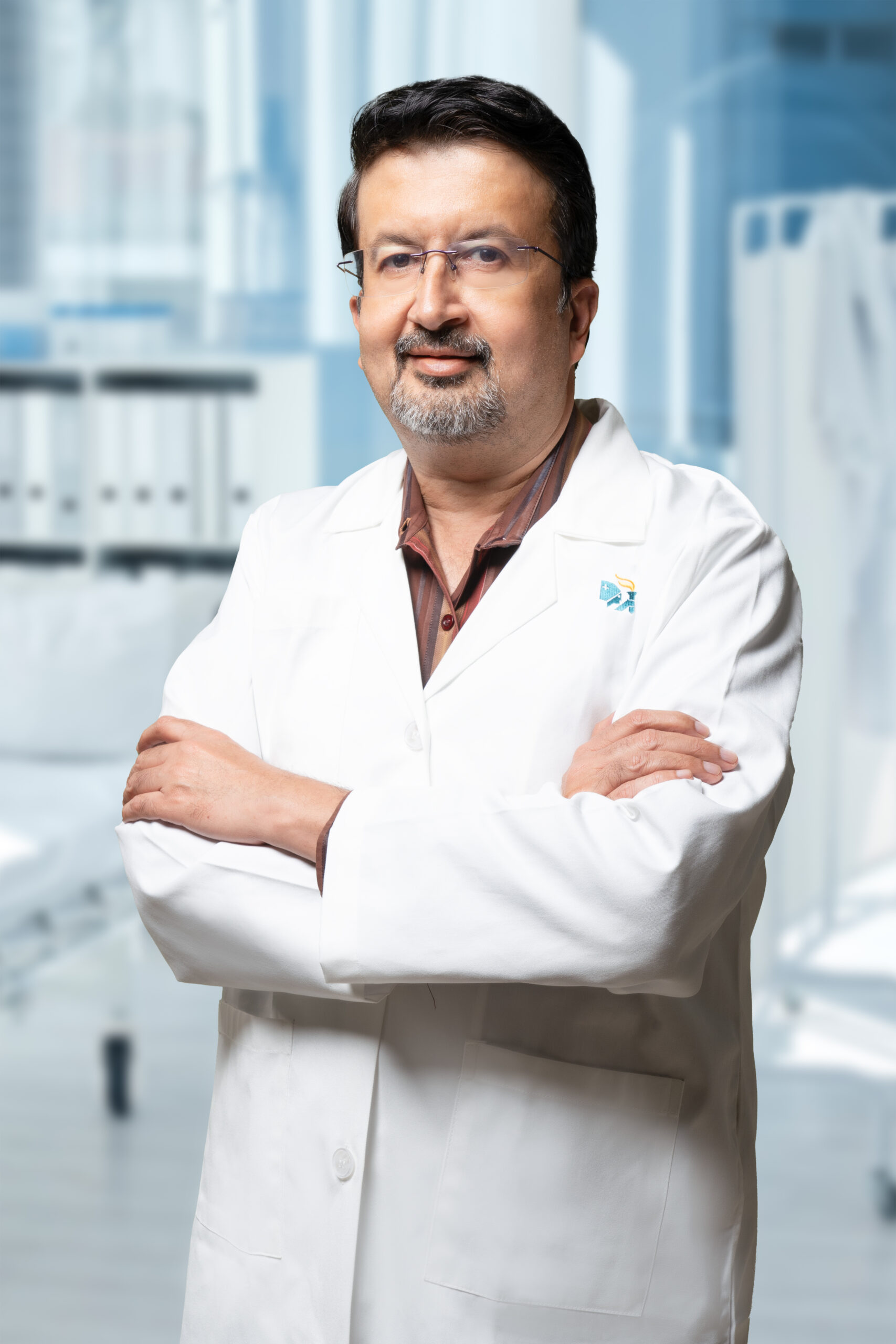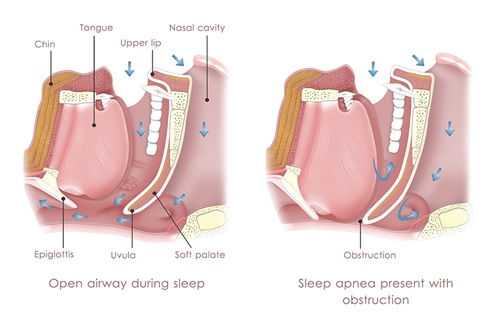What is Sleep Apnea Surgery?
Sleep apnea surgery is a treatment option for obstructive sleep apnea (OSA), a condition where breathing stops or becomes shallow during sleep. This happens due to a blockage in the upper airway, often caused by relaxed throat muscles, large tonsils, or structural issues in the nasal passages. Surgery is considered when lifestyle changes, CPAP (Continuous Positive Airway Pressure) therapy, or other non-invasive treatments do not provide adequate relief.
Why Choose India for Sleep Apnea Surgery?
India is a leading destination for sleep apnea treatment, offering access to highly experienced surgeons and state-of-the-art medical facilities.
Key Benefits:
- World-Class Medical Facilities: Equipped with advanced technology for accurate diagnosis and effective surgical treatments.
- Experienced Surgeons: Highly skilled surgeons specializing in sleep apnea surgery with successful outcomes.
- Affordable Treatment: India offers cost-effective options for sleep apnea surgery without compromising quality.
- Comprehensive Care: From diagnosis to recovery, patients receive personalized care throughout their journey.
Conditions Treated with Sleep Apnea Surgery
Sleep apnea surgery can be used to treat different types of obstructive sleep apnea, particularly when non-surgical methods fail. The surgery addresses issues such as:
- Enlarged Tonsils and Adenoids: Common in children but also can affect adults, blocking airflow during sleep.
- Deviated Septum: A crooked nasal septum can impede airflow and lead to sleep apnea.
- Large Uvulas or Soft Palate: A thickened or enlarged uvula or soft palate can block the throat’s airway.
- Obesity-Related Apnea: Weight loss surgery may be considered for patients with severe obstructive sleep apnea due to obesity.
- Jaw Alignment Issues (Maxillomandibular Advancement): Structural problems with the jaw may contribute to airway obstruction.
Sleep Apnea Surgery Procedures
- Uvulopalatopharyngoplasty (UPPP):
A common surgical procedure to remove excess tissue from the throat (such as the uvula and soft palate) to widen the airway and improve airflow. - Genioglossus Advancement (GA):
A surgery designed to reposition the tongue muscle attachment to prevent airway collapse during sleep. - Tonsillectomy and Adenoidectomy:
Removal of the tonsils and adenoids to clear the airway in children and adults with enlarged tonsils causing obstruction. - Septoplasty:
Corrects a deviated septum to improve airflow and relieve nasal blockages that contribute to sleep apnea. - Maxillomandibular Advancement (MMA):
A surgical procedure that repositions the upper and lower jaw to enlarge the airway, primarily used in patients with severe obstructive sleep apnea. - Tracheostomy:
A surgical procedure that creates an opening in the neck and windpipe to bypass the obstructed airway. This is generally considered when other surgical options are ineffective.
Symptoms Indicating Sleep Apnea
Signs that may indicate sleep apnea include:
- Snoring loudly or irregularly during sleep
- Pauses in breathing or choking during sleep
- Excessive daytime sleepiness or fatigue
- Difficulty concentrating or memory problems
- Morning headaches
- Irritability or mood swings
- Dry mouth or sore throat in the morning
If you experience these symptoms, seeking medical advice can help you get a proper diagnosis and treatment.
Benefits of Sleep Apnea Surgery
Sleep apnea surgery can improve your quality of life by addressing the root causes of the condition.
Key Benefits:
- Improved Sleep Quality: Surgery helps restore proper airflow, allowing for restful, uninterrupted sleep.
- Reduced Risk of Complications: Treating sleep apnea lowers the risk of serious conditions like heart disease, high blood pressure, stroke, and diabetes.
- Enhanced Daytime Energy: With better sleep, many patients experience improved mood and energy levels.
- Improved Breathing: Surgery helps clear airway obstructions and improves overall breathing patterns.
Why Choose Healtour Solutions for Sleep Apnea Surgery?
Healtour Solutions offers expert assistance in connecting you with top specialists and hospitals for sleep apnea surgery in India. We ensure comprehensive services for international patients:
- Access to renowned ENT specialists and sleep surgeons with years of experience.
- Full support with travel arrangements, accommodation, and hospital visits.
- Transparent pricing with clear treatment plans.
- Personalized care throughout your treatment journey.
Cost of Sleep Apnea Surgery in India
India provides affordable sleep apnea surgery options, with costs significantly lower than in many Western countries.
Estimated Costs:
- Uvulopalatopharyngoplasty (UPPP): ₹1,00,000 – ₹2,50,000 (Approx. $1,200 – $3,000).
- Genioglossus Advancement (GA): ₹1,50,000 – ₹3,00,000 (Approx. $1,800 – $3,800).
- Tonsillectomy and Adenoidectomy: ₹40,000 – ₹1,00,000 (Approx. $500 – $1,200).
- Septoplasty: ₹50,000 – ₹1,50,000 (Approx. $600 – $2,000).
- Maxillomandibular Advancement (MMA): ₹2,50,000 – ₹5,00,000 (Approx. $3,000 – $6,200).
- Tracheostomy: ₹1,50,000 – ₹4,00,000 (Approx. $1,800 – $5,000).
Costs may vary based on the complexity of the case, surgeon’s fees, and hospital facilities.
Post-Surgery Care
After sleep apnea surgery, follow-up care is essential to ensure proper healing and optimal results.
Recovery Tips:
- Take prescribed medications to prevent infections and reduce inflammation.
- Rest and avoid strenuous activities during the recovery period.
- Follow the surgeon’s instructions regarding post-operative care and lifestyle changes.
- Attend follow-up appointments to monitor recovery and assess the effectiveness of the surgery.
Frequently Asked Questions (FAQs)
- What is sleep apnea surgery?
Sleep apnea surgery aims to treat obstructive sleep apnea by addressing physical blockages in the airway, such as enlarged tonsils, a deviated septum, or jaw alignment issues. - Is sleep apnea surgery effective?
Yes, sleep apnea surgery can significantly improve symptoms and quality of life for patients with obstructive sleep apnea, particularly when non-surgical treatments have failed. - How long does recovery take after sleep apnea surgery?
Recovery varies depending on the type of surgery, but most patients can return to normal activities within 1-2 weeks. Full recovery may take several weeks. - Do I need to undergo CPAP therapy after surgery?
Some patients may still need CPAP therapy after surgery, depending on the severity of the condition and the type of surgery performed. - Is sleep apnea surgery painful?
Most patients experience mild to moderate discomfort after surgery, but pain is usually manageable with prescribed medications. - Will sleep apnea surgery cure the condition permanently?
While surgery can effectively treat the physical causes of sleep apnea, it is important to follow up with lifestyle changes to prevent recurrence. - What are the risks associated with sleep apnea surgery?
Risks may include infection, bleeding, difficulty swallowing, and temporary voice changes, depending on the type of surgery performed. - Can sleep apnea surgery help with snoring?
Yes, sleep apnea surgery can reduce or eliminate snoring by clearing airway obstructions. - How do I know if I need sleep apnea surgery?
Surgery is typically recommended for patients who have severe obstructive sleep apnea that is not responding to CPAP therapy or lifestyle changes. - Is sleep apnea surgery covered by insurance?
Insurance coverage varies, but many insurance plans cover sleep apnea surgery if it is deemed medically necessary. Check with your provider for specific details.



